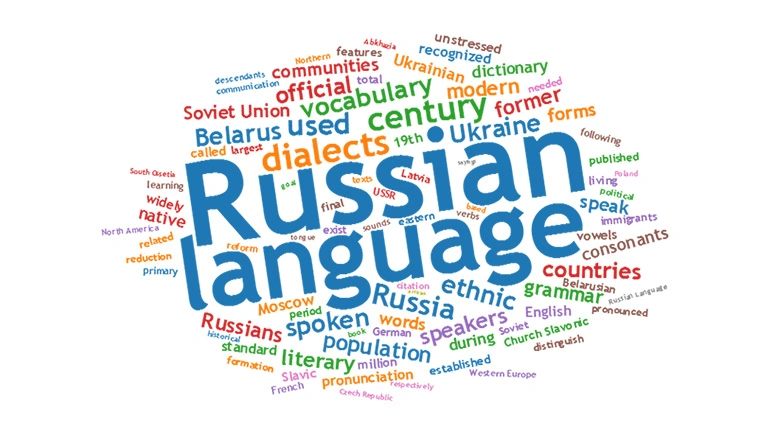Learning Russian at Watts Education is rich in history, literature, and culture. It is also one of the most spoken languages in the world, providing different ideas for understanding this unique region. However, to learn Russian Language is often challenging due to its distinct alphabet, complex grammar, and pronunciation.
Mastering the Russian Language requires commitment and a strategic approach. This guide offers a structured approach to navigating the complexities of Russian and combining traditional learning techniques with modern tools and methods. By following all these steps and maintaining a regular practice schedule for Russian Language Learning, you will enjoy the journey of cultural exploration and personal growth.
Here are some ideas to guide about the Russian Language:

1. Build a Strong Knowledge
- To Learn and understand basic grammar like nouns, genders (masculine, feminine, neuter), and like (nominative, accusative, genitive, etc.) can help students.
- Use common words and phrases in everyday life, such as numbers and basic verbs.
2. Indulge Yourself in the Language
- Spending time in a Russian-speaking country will give you real-world practice.
- Join Russian cultural clubs or attend local events to practice with others.
- Put labels on items in your home with their Russian names to reinforce vocabulary.
3. Master Russian Cases and Verbs
- Learn the usage and endings of each case through examples and exercises.
- Distinguish between perfective and imperfective verbs.
4. Seek Professional Guidance
- A native-speaking tutor can provide personalised feedback and help you improve faster.
- Enroll in local or online classes for structured learning.
Benefits of Learning the Russian Language
Learning the Russian Language offers numerous benefits that extend beyond linguistic skills. Russian can significantly enhance both personal and professional opportunities. Here are some key advantages to learning Russian:
- Russian culture made contributions to literature, music, dance and art. Understanding the lyrics of Russian classical and folk music allows you a deep appreciation and a unique connection to Russian culture.
- Russia’s economy plays a critical role in the global energy, technology, engineering and science sectors. Russia can set you to participate in international business, diplomacy, intelligence, and tourism.
- Russia is a leader in scientific and technical fields, especially in physics, engineering, and space exploration. Understanding this language can provide knowledge and professional development.
- Learning Russian Language can improve cognitive abilities and problem-solving skills. The structure and grammar of Russia challenge the brain, improving memory and mental flexibility.
Watts Education

Watts Education is an educational institution that helps you by providing high-quality language learning programs and skill development courses to students and professionals around the world. It has developed a trusted name in the field of language and cross-cultural communication.
Key Features
- It was founded with the vision of creating an inclusive and effective language- learning environment.
- It is best to hire skilled instructors, but many are native speakers and have extensive teaching experience.
- Watts Education offers a variety of flexible learning options, like full-time and part-time. Online and offline courses are scheduled.
- Watts Education operates both physical campuses and online learning platforms, making it popular with a global audience.
- The institution focuses on teaching in a variety of languages, such as globally spoken languages like English, French, Spanish and Russian. This language meets the needs of different learners around the world.
Russian Language Course At Watts Education
The Russian Language Course is designed to provide a skilled learning experience for students at all levels—from beginners to advanced. Watts Education structures its Russian courses to guide students through each stage of language clearly and systematically.
Key Features
- In this course vocabulary is taught in context, which helps students to learn words and phrases in every communication.
- It is mainly focused on speaking and listening skills. There is a lot of conversation practice and language immersion techniques.
- Understanding Russian culture is integral to mastering the language. This course includes lessons on Russian traditions, etiquette, and social norms, which provide cultural context for language use.
- Learning the Russian language course provides a variety of formats, such as online, part-time, and full-time, for students to learn it quickly.
Course Level
- Designed for those levels such as alphabet, basic grammar, and essential vocabulary for everyday conversations.
- At the advanced level, students work on their language skills, achieving greater fluency and learning specialized vocabulary.
Steps to Learn the Russian Language
1. Check the Availability of Russian Courses
- Visit the website or contact their administrative office of the institute to confirm if they offer Russian Language Courses.
- Look for specific details like levels (beginner, intermediate, advanced) and course formats (online, in-person, or hybrid).
2. Understand the Curriculum
- Inquire about the course structure, such as:
- Focus areas: Speaking, listening, reading, writing, and cultural immersion.
- Materials used: Textbooks, apps, or digital resources.
- Certification: Whether they provide certification upon completion.
3. Class Schedule and Enrollment
- Review the schedule to find a class that fits your routine.
- Register by filling out an application form or signing up through their website.
4. Additional Resources
- Ask if they provide supplemental materials like:
- Access to language labs.
- Practice sessions with native speakers.
- Online tools for self-paced learning.
5. Learn About the Instructors
- Check the credentials of the Russian language instructors to ensure they have the necessary expertise and teaching experience.
6. Fees and Policies
- Understand the fee structure, payment options, and refund policies.
Conclusion
Mastering the art of the Russian language is a journey that combines structured learning, consistent practice, and culture. It begins with mastering the Cyrillic alphabet and basic grammar and process through expanding vocabulary and conversational skills in developing fluency through native content and the real world. The process requires dedication, patience, and a willingness to develop challenges as learning opportunities.
FAQs
Q1. How much time does it take to become fluent in Russian?
Ans- It depends on your dedication and the intensity of your study.
- Conversational fluency: 1-2 years with consistent practice.
- Full fluency: 3-5 years.
2. What is the best way to learn Russian?
Ans – Start with these steps:
- Learn the Cyrillic alphabet.
- Master common phrases and basic vocabulary.
- Study essential grammar rules, such as cases and verb conjugations.
- Practice listening and speaking through apps, videos, or language partners.
3. How can I improve my speaking skills?
Ans – Practice with native speakers using language exchange apps
- Record yourself speaking and listen for improvement areas.
4. Is grammar really important in Russian?
Ans – Yes, grammar is important because Russian varies on word endings and cases to convey meaning. Understanding grammar helps you form exact sentences and avoid miscommunication.
5. How can I stay motivated while learning Russian?
Ans – Set clear, achievable goals.
- Celebrate milestones, like understanding a movie scene or holding a basic conversation.
- Engage with Russian culture and read Russian literature.
